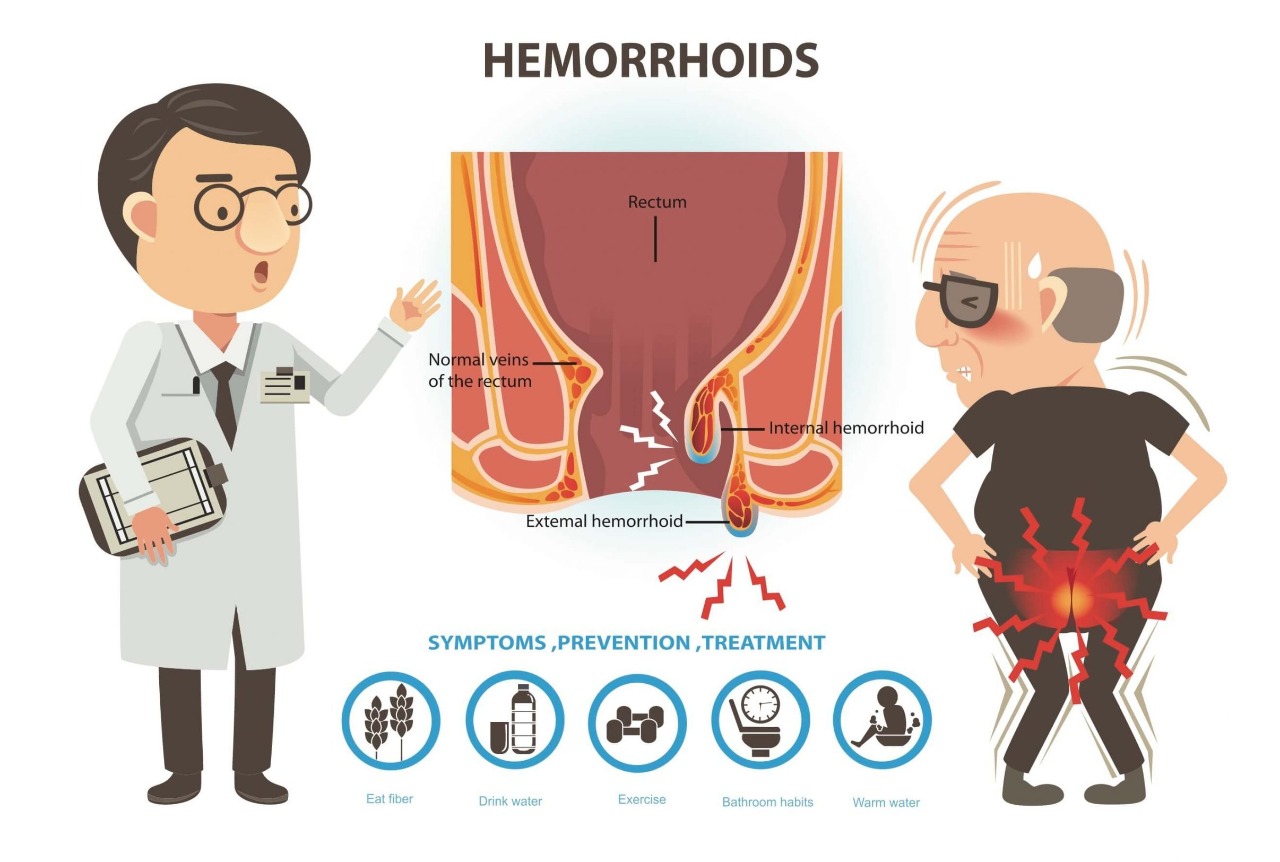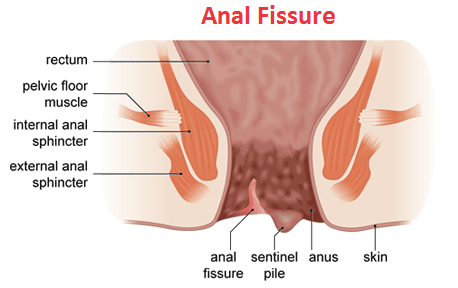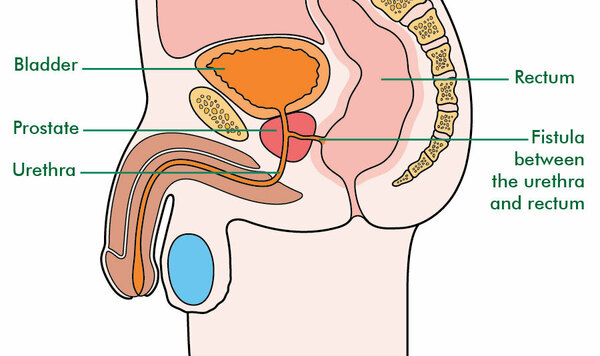Inflammatory bowel disease is a condition in which the innner lining of the GI tract becomes inflamed, leading to ulcers and bleeding. The colon is most often the site of this inflammation. Patients with inflammatory bowel disease have symptoms that include diarrhea, abdominal pain, infections, and bleeding. Inflammatory bowel disease falls under two main headings: Crohn's disease, which involves the entire GI tract, and ulcerative colitis, which involves only the colon. The cause of inflammatory bowel disease is unknown. The primary treatment for inflammatory bowel disease involves medications, such as steroids, which can decrease inflammation and resolve symptoms. Occasionally, if segments of bowel are very inflamed and are not responding to medication, surgery to remove these segments may be necessary. While the patient is deep asleep and pain-free (general anesthesia), an incision is made in the midline of the abdomen.
The most common symptoms of Ulcerative Colitis are stomach cramping and bloody Diarrhea. The stools may be either firm or loose, and can be either blood-tinged (slightly bloody) or have a large amount of blood and mucus present. Many people also have fecal urgency, which means that they have to go to the bathroom immediately. Some have pain around the rectum when they have bowel movements. Both of these symptoms are because of an inflammation in the last part of the colon. In some patients, stomach pain, either throughout the stomach or in the lower left section, may get better after they have a bowel movement. Some people with the disease may be anemic (low blood count), dehydrated, malnourished, and may even have a fever. The amount and type of symptoms can be used to divide the disease into mild, moderate, and severe forms. Arthritis and joint problems (effusion and pain) Spondylitis inflammation of the spine Eye complications such as Cataracts, Uveitis, corneal ulcerations, and other problems could occur Aphthous Ulcers (shallow irritating mouth ulcers) may be seen. Changes in the liver (e.g., Cirrhosis), skin (e.g., erythema nodosum), and heart (e.g., Pericarditis), are rare complications. Thromboembolic events and gallbladder involvement (e.g., primary sclerosing Cholangitis) are rare complications of Ulcerative Colitis. Mild disease :- People have fewer than 5 stools per day, with only occasional bleeding. Usually, there is not much pain or tenderness in the stomach. Moderate disease :- More frequent bowel movements, usually with blood in their stools. There may be some abdominal pain and tenderness. Severe disease :-More than 6 to 12 bloody stool per day, along with stomach pain and tenderness. Patients with severe disease may be dehydrated and anemic.
Usually inflammatory bowel disease is treated with medication, exercise, and sometimes, surgery. Treatments for IBD are directed against the inflammation in the bowel. Medicines can both control flare-ups and prevent recurrences during symptom-free periods. It is important to control IBD inflammation in order to prevent complications. Drugs work by calming down the immune system's attack on the bowel. The most common types of treatments are anti-inflammatory medicines in a drug family known as five-amino salicylic acids; steroids; antibiotics; and immune-system modulators such as mercaptopurine and azathioprine.
If symptoms are limited to the bowel near the rectum, some of these medications can be given rectally, through enemas. Surgical removal of the diseased bowel is usually a permanent cure for ulcerative colitis. This surgery also puts an end to any arthritis that may be present, unless the arthritis involves the spine. Ankylosing spondylitis may last even after removal of the diseased colon. Crohn's disease does not respond as well to surgery. Surgical removal of the diseased bowel may be necessary, but it does not cure Crohn's disease. Thus, symptoms of arthritis may recur when and if bowel symptoms reappear.
Counseling may help in cases of severe anxiety or depression.
Irritable bowel syndrome may be a lifelong condition. For some people, symptoms are disabling and reduce the ability to work, travel, and attend social events. Symptoms can often be improved or relieved through treatment. IBS does not cause permanent harm to the intestines, and it does not lead to a serious disease, such as cancer.

Haemorrhoids, also known as piles, are natural cushions of tissue and veins located at the junction of rectum and anus.
Read More
Per rectal examination is painful due to Spasm of internal sphincter, A split or cut on the posterior or anterior midline of the anal verge.
Read More
A fistula in ano is a hollow tract lined with granulation tissue connecting a primary opening inside the anal canal to a secondary opening in the peri anal skin.
Read More